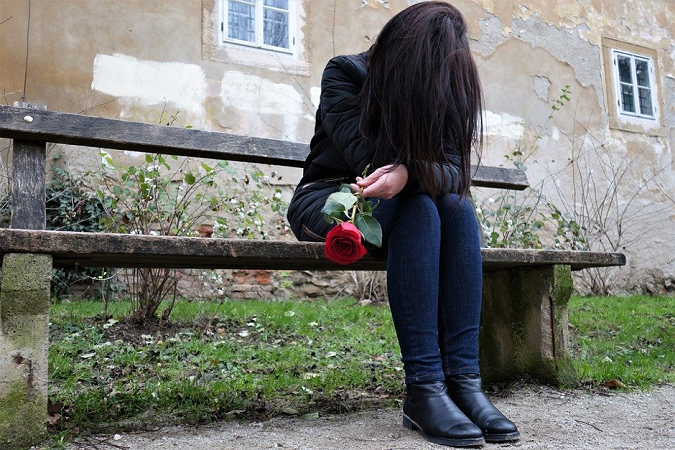Entering a Relationship After Recovery from Addiction? What You Should Know

People who have completed addiction treatment and are returning home often find it challenging to reach out and make connections with others after rehab, even though that is a totally natural and necessary need that comes with its own benefits.
Any new personal or professional undertaking can bring both excitement and stress, including starting a romantic relationship. A recovering addict may face more anxiety and worry about a slip when trying to repair old relationships and form new ones.
If you are among those assessing the possibility of beginning a new relationship after a recent recovery, it’s important to approach the process carefully.
An unprecedented emotional uplift or euphoria in a relationship is akin to a brain reaction to drugs and alcohol. And as we know, these can cause bad judgement and decision making, while also being factors that lead the list of alcohol rehab for men. In fact, according to some studies, men use almost all types of illicit drugs and alcohol more often than women.
One of the dangers of starting a new relationship after rehab lies in an emotional carousel. Rising periods of emotional uplift or euphoria alternate with recessions. You must learn how to handle and solve problems in a relationship without re-building old addictions over again.
In men's rehabilitation centers, the importance of adhering to time frame and good communication will be confirmed. Do not forget that what’s on the line is not just happiness in your personal life, but also the quality of your whole living, including your professional life.
The goal of the first years after rehabilitation is to consolidate the results of the process as much as possible. No one is impervious to remission and returns to old unhealthy habits, but you should know that it is in your power to reduce risks and avoid dangerous situations.
You must get in the best possible physical and emotional shape before you enter into the first relationships after recovery. Give yourself enough time to get back to shape physically and emotionally—at least a year before getting into a new romantic relationship.

Start a New Relationship at Least One Year After Recovery
Even in a perfectly healthy and mature relationship, you will face challenges and come against difficulties. Relationships demand continuous work on oneself and dialogue with a partner. In this long and complex process, both ups and downs occur.
And those “ups” and “downs” can provoke people to compulsive and thoughtless actions and reactions that are similar to the behavior dictated by a drug or alcohol dependent brain.
The risk here is that after months or even years of addiction, your brain may have lost some of its healthy habits patterns. Operating according to a logical and correct mental algorithm from the point of view of a healthy person now becames something new for your brain.
You, therefore, will need time and patience to cultivate and develop those healthy habits and social skills again in order to avoid and overcome any relationship difficulties.
As such, it is so important – at least during the first year after rehab – for you to focus on all aspects of your health and total recovery. Only after you have done that will you be ready to create the basis for new normal, mature and responsible relationships.
Beware of Relationship Warning Signs in the Early Stages
Sometimes it’s easier to define what is wrong in a relationship than what is 100% right. If you have doubts about your relationship, don't ignore it or assume things.
Some aspects in relationships are dangerous to those who recently checked out from drug rehab facilities or any other rehab programs, which are often filled to full capacity with patients these days, including:
- A partner attempts to control or manipulate you
- Lack of trust and emotional intimacy
- Infidelity and emotional cheating
- Pressure tactics such as the classic power play of threatening to walk out
- Partner’s behavioral overreaction
- Attempts to transfer the experience of previous relationships to your new relationship
- Inability to hold constructive dialogue.

The euphoria of first dates and the beginning of new relationships sometimes makes us to see everything through rose-colored glassess. When we are in love the ability to read the room well decreases, which can bring lots of problems.
Irrespective of your rehabilitation progress, do not forget that both parties get really hurt after parting ways, so you should always be careful.
While breakups hit women hard emotionally and physically, women are likely to recover more fully and come out emotionally stronger than men. Many men often never fully recover, they simply move on ignoring the emotional pain, spiritual injury and financial setback.
When you meet a new relationship prospect, ask yourself some basic questions to identify toxic relationships habits early on and steer clear of them:
- Does my partner ignore my point of view?
- Do they brush off how I feel and what I want?
- How do they behave during arguments?
- Do I take a back seat for the purpose of satisfying my partner?
Pay attention your partner’s character traits and subtle behaviors in the relationship. If you discover that since you entered a relationship with them you now rarely meet with your friends or that you have abandoned your own hobbies and interests, that may be signs of an overly controlling partner, pointing to the possibility that you are in a toxic relationship.
If any of this sounds familiar, it's time to make some big changes. Do not ignore the warning signs. Rather, take time to address them, or end the relationship if the toxic habits don’t stop.
Deploy Communication as a Solution for Relationship Issues
After rehabilitation, many people are afraid to tell their new partners about their history of recovery from addiction, because they are often trying to impress their partners and or suppress the memory of this experience.
However, that is not always the right way to go about it or the right thing to do. Doing that can lead to growing anxiety and fear of being "busted" or unwittingly giving yourself away. Over time, without open and honest communication, relationships that could otherwise be healthy and happy break up under the weight of dishonesty and distrust.
That’s why it is important to build on a foundation of open, honest and loving communication so that you can create real intimacy and trust in your new romantic affair and relationships.
Do not be afraid to tell your partner about your past drug abuse or about the difficulties and challenges you have had to overcome. Communicating things openly and truthfully not only builds trust and intimacy, but it is also an integral part of getting your partner’s support and consideration as you completely recover and kick that bad habit away for good.
So, share the story of your addiction, rehabilitation and recovery with those closest to you where appropriate. Be open with your partner in particular when discussing experiences and fears. It will bring accountability, take a load of your chest, and further boost your mental and emotional wellbeing, thus helping totally eradicate and emancipate you from drug abuse.
Communication is the key to understanding drug abuse experiences and facilitating recovery. In the end, numerous studies prove that an individual’s partner, family and close friends play an important role in successful rehabilitation and return to a normal, familiar and thriving life.



![9 Tips for Managing Your Online Writing Projects Efficiently [node:titile]](/sites/default/files/styles/thumbnail_rectangle/public/open-book-laptop-online-writing-tips.jpeg?itok=iq4PIT7b)


















